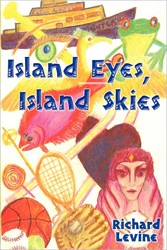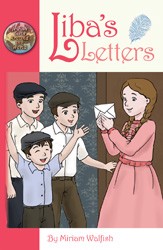Ellen G. Cole, a retired librarian of the Levine Library of Temple Isaiah in Los Angeles, is a past judge of the Sydney Taylor Book Awards and a past chairperson of that committee. She is a co-author of the AJL guide, Excellence in Jewish Children’s Literature. Ellen is the recipient of two major awards for contribution to Judaic Librarianship, the Fanny Goldstein Merit Award from the Association of Jewish Libraries and the Dorothy Schroeder Award from the Association of Jewish Libraries of Southern California. She is on the board of AJLSC.

Children’s
Sing a Song of Tuna Fish: Hard-to-Swallow Stories from Fifth Grade
- Review
By
– August 6, 2012
Tuna Fish is decidedly mainstream Jewish fiction offering an unusual setting, a strong central character and a narrating voice with attitude. Underlying the flippancy and humor is respect for family, neighborhood, memory and ethics. Author Esmé Codell recalls a year from her childhood, 1979, when she was in fifth grade and her Jewish family lived in a sagging apartment building in a poor, seedy neighborhood in Chicago. She organizes her memoir by topic, thus Jewish content is dominant in only one of the seven chapters. However, the others are dotted with Yiddish expressions, reference to Yiddish immigrants and Jewish values. Here is an honest picture of life in an assimilated, non-observant Jewish household. Furthermore, it portrays a modern, urban, poor family. Poor people are rare in Jewish children’s literature where poverty magically disappears with the Americanization of our immigrant generations. Codell writes very well, maintaining a fast pace with poetic style. She is observant, perceptive about what she sees, warm, funny, caring, full of energy and real. Readers who like the narrators in Amy Koss’ fiction will bond with Codell immediately. The vignettes offer strong verbal pictures of another time and older technology. Descriptions of rotary phones and record players are straightforward for young readers and a hoot for adults. The last chapter recalls what it was like to live a block from your grandmother and to have daily intimacy with cousins and extended family. The chapter on religion, “Stealing the Afikomen,” is strongly feminist; Codell confronts her local Conservative synagogue’s male focus. A prize of anything is promised to the boy who steals the matzah from under the rabbi’s chair; Codell decides she will do it and does. However, she does not get the promised prize. Disillusioned, she drops out of Sunday School. Her father suggests Buddhism as an alternative, a shock to upper elementary readers now, but a burgeoning trend among ethnic Jews then. This story and other memories reflect differences between observant and assimilated Jews; these issues come across as struggles of religious connection. At no time, despite arguments and questioning, do the parents repudiate their Jewish identity. Many Reform adults read novels about Orthodox communities as exotic. Orthodox youngsters could feel the same here; what is life like for a different kind of Jew? This is a delicious story about a young girl trying to understand her world, pushing the bonds of authority within the bounds of her Jewish morality. The book and its moving introduction impress on young readers the importance of cherishing family memories. Rarely are emotional riffs so much fun. This book will have great appeal for readers ages 8 to 12.
Discussion Questions

Jewish literature inspires, enriches, and educates the community.
Help support the Jewish Book Council.



